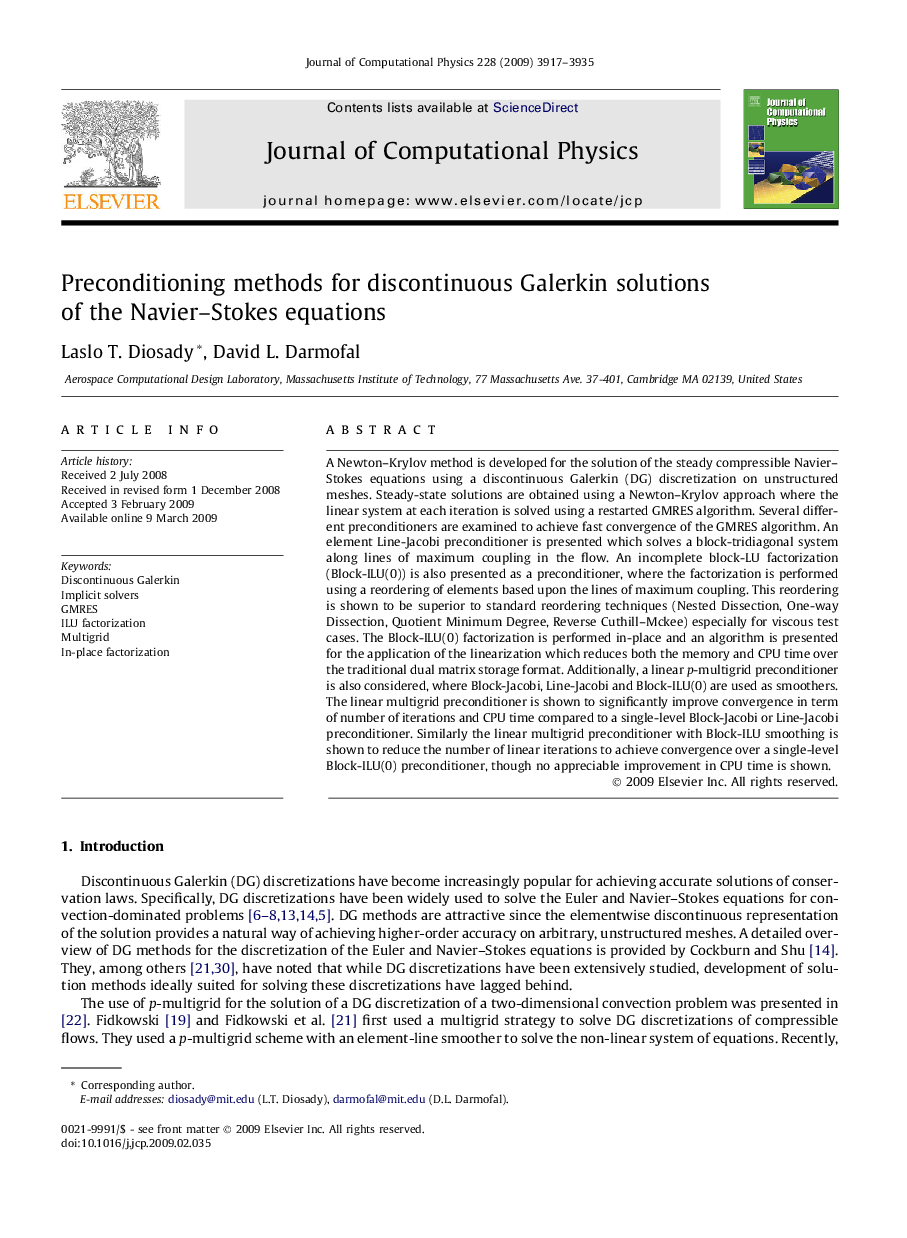| Article ID | Journal | Published Year | Pages | File Type |
|---|---|---|---|---|
| 521576 | Journal of Computational Physics | 2009 | 19 Pages |
A Newton–Krylov method is developed for the solution of the steady compressible Navier–Stokes equations using a discontinuous Galerkin (DG) discretization on unstructured meshes. Steady-state solutions are obtained using a Newton–Krylov approach where the linear system at each iteration is solved using a restarted GMRES algorithm. Several different preconditioners are examined to achieve fast convergence of the GMRES algorithm. An element Line-Jacobi preconditioner is presented which solves a block-tridiagonal system along lines of maximum coupling in the flow. An incomplete block-LU factorization (Block-ILU(0)) is also presented as a preconditioner, where the factorization is performed using a reordering of elements based upon the lines of maximum coupling. This reordering is shown to be superior to standard reordering techniques (Nested Dissection, One-way Dissection, Quotient Minimum Degree, Reverse Cuthill–Mckee) especially for viscous test cases. The Block-ILU(0) factorization is performed in-place and an algorithm is presented for the application of the linearization which reduces both the memory and CPU time over the traditional dual matrix storage format. Additionally, a linear p-multigrid preconditioner is also considered, where Block-Jacobi, Line-Jacobi and Block-ILU(0) are used as smoothers. The linear multigrid preconditioner is shown to significantly improve convergence in term of number of iterations and CPU time compared to a single-level Block-Jacobi or Line-Jacobi preconditioner. Similarly the linear multigrid preconditioner with Block-ILU smoothing is shown to reduce the number of linear iterations to achieve convergence over a single-level Block-ILU(0) preconditioner, though no appreciable improvement in CPU time is shown.
